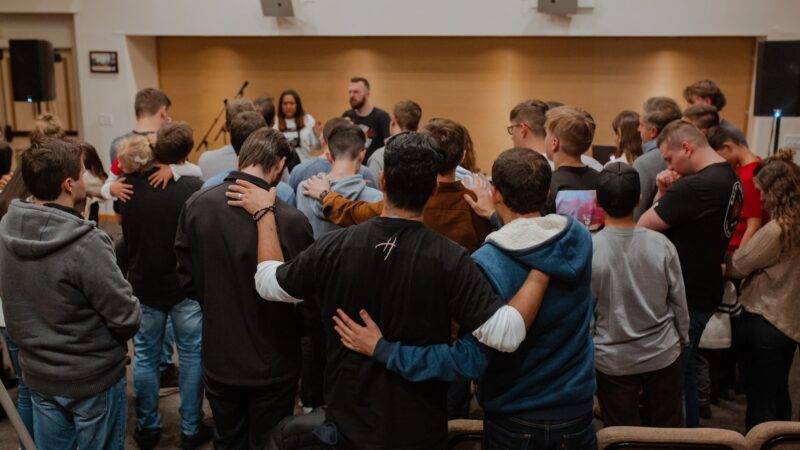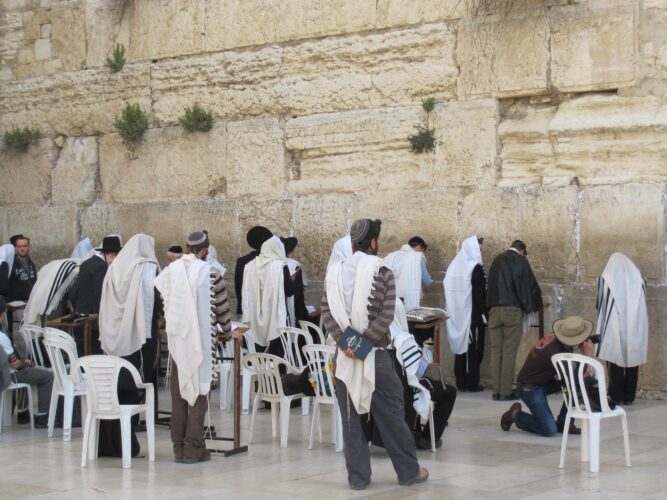I consider the Biology of Belief to be an important book. For many years, I have heard the statement from Dr. Lipton, a Ph. D. cell biologist formerly of Stanford, that a person always does what he or she believes in their heart – not what they profess.
Over 50 years of pastoral experience has taught me how true this is! How many times I have been disappointed by passionate professions that came to nothing! More than 50 years ago I remember a couple who were about 30 years old. The husband spoke to me at the end of our service and stated that his experience at our services was the best thing he had experienced in a congregation. They said they would become part of the community. We were a small congregation, and I was excited. We could use an energetic, young, and enthusiastic couple who were excited about my preaching and the worship service. That was the last time I ever saw them. This pattern of profession without follow through was repeated countless times in my experience, for congregational commitment, marriage recommitment, financial discipline, devotional life, breaking bad habits, disciplining children, and so much more. Time after time, people would make a profession of commitment and then? This is a common pattern seen in some circles where there are invitations to come forward and repent of sin. Some come forward over and over and never change. I came to understand that a person may think they mean what they say, but it is not a heart commitment. The goal of preaching, small group formation, and the presence of the Spirit in power is to bring profession to real belief, that is heart conviction. When heart conviction is established, real change happens. This has been so in our in our marriage where we have learned to live in love.
Lipton’s book, though ending with new age spirituality and a belief in life after death, provides a philosophical/scientific case to explode the mechanistic materialistic understanding of science. He shows that cell biology itself disproves such mechanistic views. Rather the cell itself, and its very membrane shows a level of purpose and adaptation. I think he proves his case that we are not determined by our genes, but genes and cells respond to environments. In the debate between genes (nature) and nurture, he comes down on the side of nurture. He also notes that quantum physics presents us with an ultimately spiritual world and the physical is a manifestation of that reality. While not positing the design thesis like Dr. Gerald Schroeder, The Science of God and The Hidden Face of God, Lipton’s book would give credibility to those who so argue. We see in the book by one of America’s most famous philosophers, Thomas Nagel, Mind and Cosmos, an amazing rejection of Darwinism as usually understood. He still seeks to remain an atheist but notes that evolution seems to be connected to something of mind that permeates the material world, maybe in a more animistic sense. As C. S. Lewis said, “An atheist can not be too careful nowadays.” There are dangers everywhere to challenge that atheism. Bruce Lipton’s book is one of those challenges.
Most of Lipton’s writings are presented to disprove the materialistic science that has dominated western culture. He then goes on to show that our lives are determined by our beliefs, but not the superficial level of belief of the conscious mind, but the deep level of beliefs in the subconscious. This level of belief actually changes our cells. A joyful and successful life is all about establishing the right beliefs. This requires reprograming our subconscious. Lipton is not just arguing for positive thinking (Norman Vincent Peale- The Power of Positive Thinking). He states that this usually does not work. Rather methods are presented to get to the deeper subconscious. This almost seems like a new age parallel to Word of Faith teaching (Kenneth Hagin) were the confession of the Word goes deep into our inner man, heart or spirit, and changes our lives. It produces deep belief/conviction.
The book is moving in the right direction but is quite short of biblical faith. The Bible teaches the importance of faith and it does not mean just mental ascent or even profession, but something deeper and more settled. In the Bible, such change comes from the power of the Word that becomes grafted into our hearts. It comes from community formation whereby the individual changes on the subconscious level. In the Life Model Works movement, Jim Wilder and Michael Hendricks (The Other Half of Church) argue that discipleship formation produces habits and settled conviction that can only happen in the sociological context of committed community together with mature people who impart themselves. The challenge is that we have to get our beliefs deep down inside and really agree with what the Bible says in its promises and its moral and behavioral instruction. This is a key to seeing spiritual and physical healing in our ministry to others.
My takeaway from Lipton’s book is to remember that for ourselves and those whom we pastor, we are seeking to see belief formation on the deeper levels of both the conscious and unconscious mind, both the left and right brains! It is also to be confident that we live in an ultimately spiritual world.









